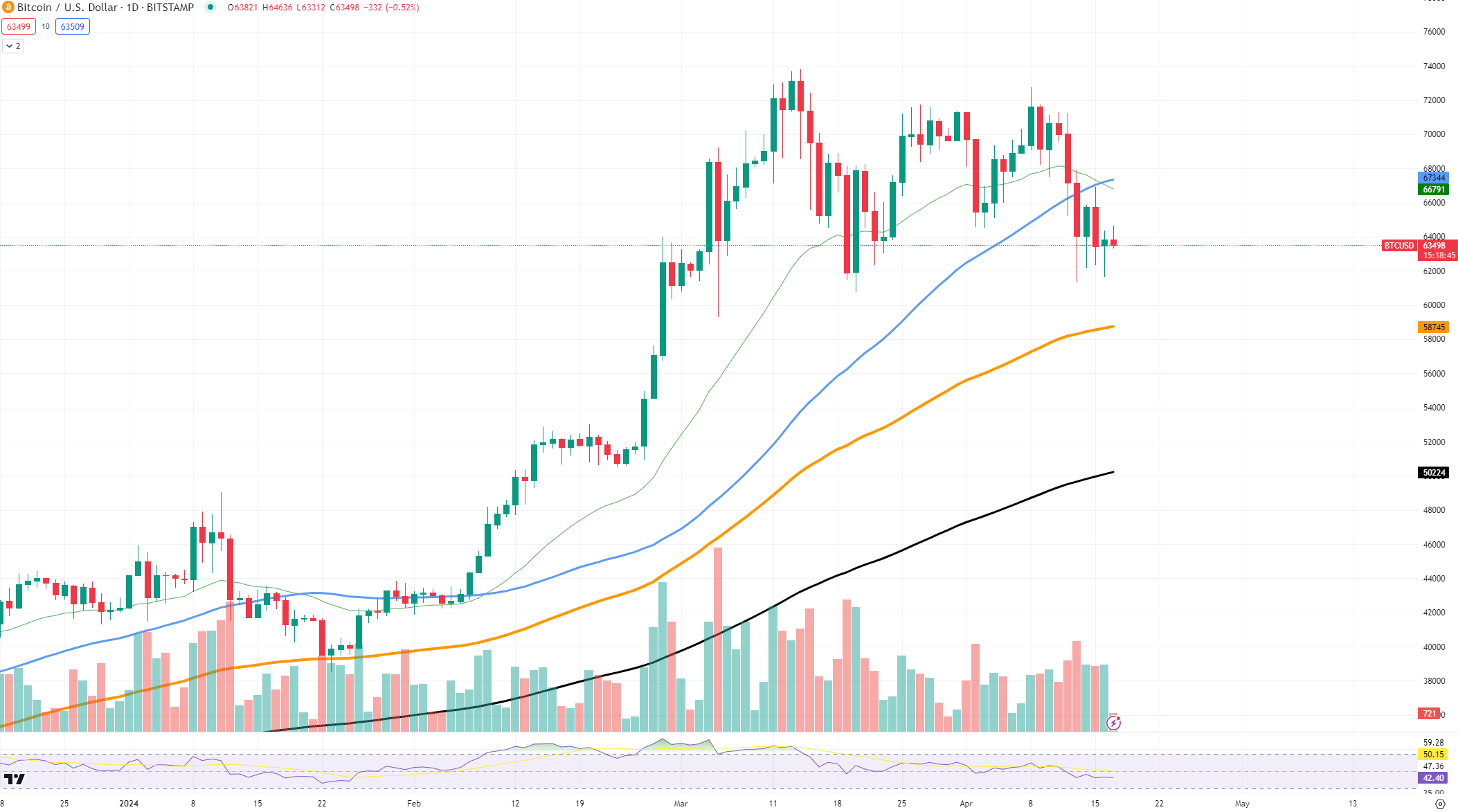
Disclaimer: The opinions expressed by our writers are their own and do not represent the views of U.Today. The financial and market information provided on U.Today is intended for informational purposes only. U.Today is not liable for any financial losses incurred while trading cryptocurrencies. Conduct your own research by contacting financial experts before making any investment decisions. We believe that all content is accurate as of the date of publication, but certain offers mentioned may no longer be available.
Bitcoin halving is the hottest topic on the cryptocurrency market right now. But former Ark Invest analyst Chris Burniske suggests there is more to the story. His analysis using the past Bitcoin cycle provides a reminder that Bitcoin's halving and movement in cycles is not as straightforward as it may seem at first glance.
The chart showing Bitcoin's cycles post-halving reveals a pattern of surges and plunges over several years. Post-halving periods often start with a surge, followed by a cool-off phase. We are currently in such a phase, where growth has slowed down, tempting "lettuce hands" (those quick to sell) to let go. But history suggests that those who hold on could see more prosperous times ahead.

Looking at Bitcoin's current price chart, we see resistance around the $67,000 mark, with support at $50,000. If Bitcoin holds above this support level and starts climbing, it could attempt to retest its previous highs near $67,000. A break above it could signal the start of a new surge. However, if it slips below the support, we might see further drops before any significant recovery.
Burniske's reminder is timely as the market is performing poorly. The halving is often just a starting gun, and the race that follows can test the sentiment of investors. The current cycle low points to a period of accumulation, a time when believers in Bitcoin's long-term value might see opportunities where others see stagnation.
For investors, the key takeaway is that halving has indeed provided fuel for Bitcoin's growth, but at the same time, immediate growth is not guaranteed right before or after halving. The current consolidation phase could be the quiet before the next rise, but only time will tell.

 Gamza Khanzadaev
Gamza Khanzadaev Denys Serhiichuk
Denys Serhiichuk Tomiwabold Olajide
Tomiwabold Olajide Caroline Amosun
Caroline Amosun